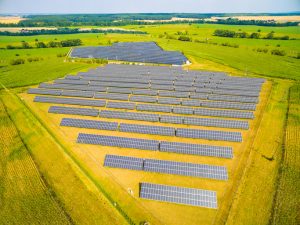
Pennsylvania’s Alternative Energy Portfolio Standards Act of 2004 (AEPS) was partly intended to allow electric companies to buy and sell Alternative Energy Credits (AECs) in the hope that reciprocal markets would develop in surrounding states. Any solar farm connected to the PJM RTO could participate in the Pennsylvania AEPS credit market. The buying and selling of AEPS would help underwrite the expenses of building renewable energy projects such as wind and particularly solar and help grow the solar industry.
Which it did, but mostly in other states.
According to the Solar Energy Industries Association, in 2017, Pennsylvania has 321.1 MW installed. It ranks 19th nationally with 3,061 jobs with 530 companies. Both New Jersey and New York are up to 6 times the amount of installed capacity with 2 to 3 times the number of jobs and companies.
The state’s AEPS law requires 18% of the electricity supplied by Pennsylvania’s electric distribution companies (EDCs) and electric generation suppliers (EGSs) come from alternative energy resources by 2021. Both EDCs and EGSs legally bought credits to be able to comply with the AEPS law. However, with Pennsylvania solar jobs and projects lagging, out-of-state-credits have poured in, so more out-of-state credits are being bought and traded than in-state.
None of which is helping investment in Pennsylvania solar companies.
Enter House Bill 118. Passed by the state General Assembly, it shuts off the flow of out-of-state credits by only allowing solar projects wired directly to customers, EDCs, or connected to the grid within an EDC’s territory to qualify for solar renewable alternative energy portfolio credits:
“…in order to qualify as an alternative energy source eligible to meet the photovoltaic share of this commonwealth’s compliance requirements under the “Alternative Energy Portfolio Standards Act” and to qualify for solar renewable alternative energy portfolio credits, each solar photovoltaic system must do one of the following:
- Directly deliver the electricity generated to a retail customer of an EDC or to the distribution system operated by an EDC operating in the state and currently subject to the Renewable Portfolio Standard (RPS);
- Directly connect to the system of an electric co-op subject to the RPS; or
- Directly connect to the transmission system at a site within the service territory of an EDC operating in the state.”
HB 118 sounds like great news for the state’s struggling solar energy industry. Limiting credits to in-state only sources will hopefully lead to further solar energy projects and lower energy prices. It’s also very likely that proposed HB 1799 which enables EDCs to build solar projects may benefit from HB 118’s passage. HB 1799 is currently before the House Consumer Affairs Committee
But it’s not all good news for cleaner energy in the state because HB 118 ironically contains a dirty rider [SECTION 1938-A] that disappoints environmentalists. The rider allows wastewater treatment facilities to use expired permits to continue accepting and discharging conventional oil and gas drilling wastewater into waterways. The rider also hampers the state’s Department of Environmental Protection from implementing water quality standards for manganese.
Governor Wolfe is expected to sign the bill.
Also published on Medium.
